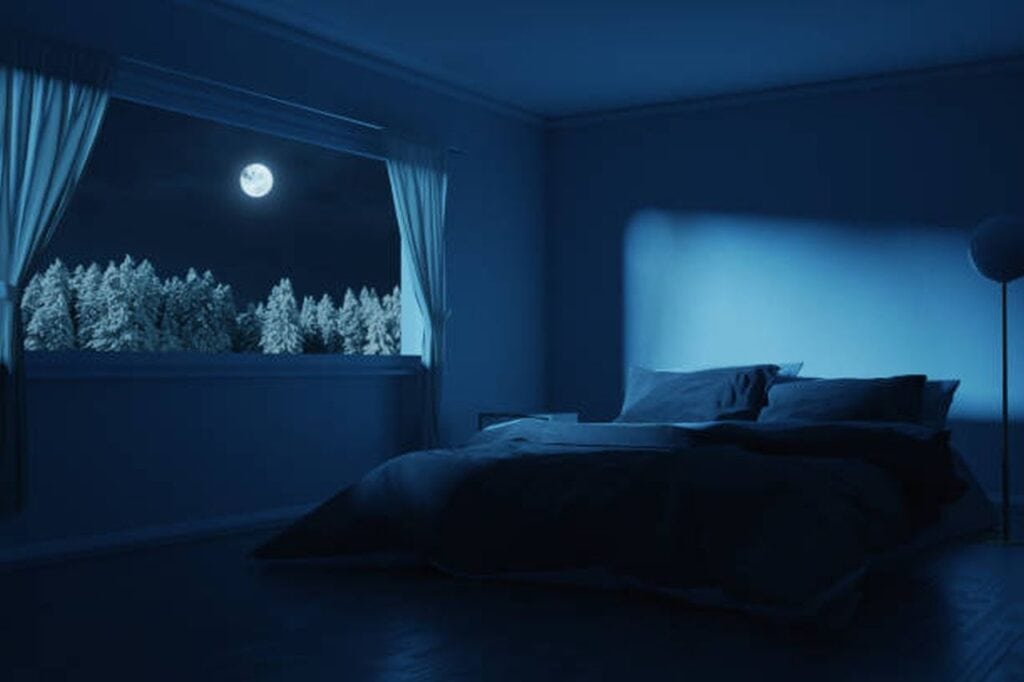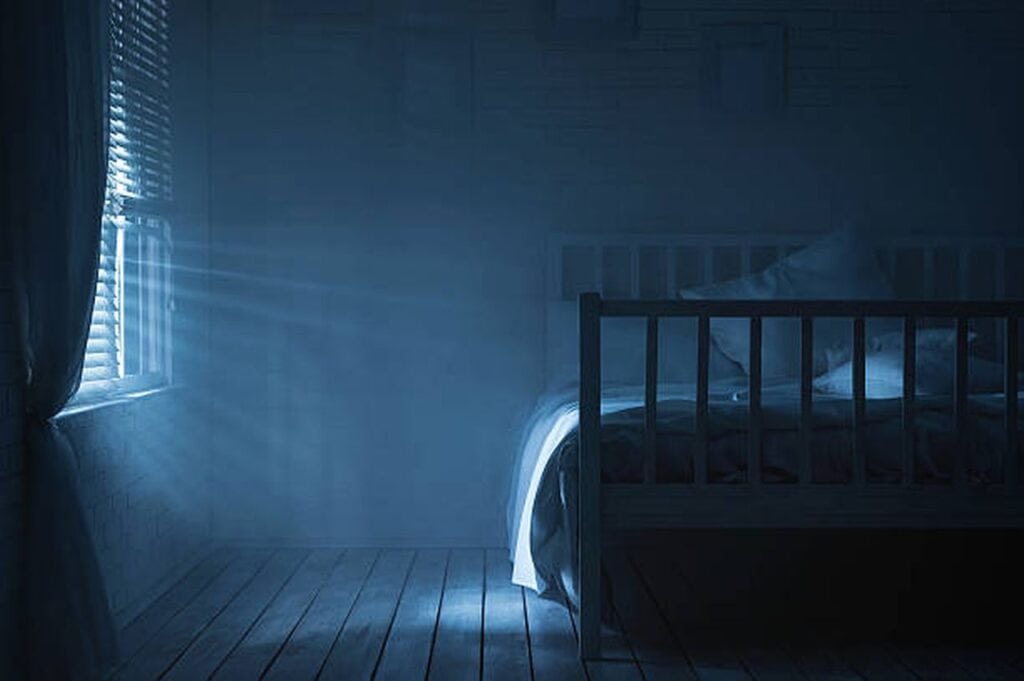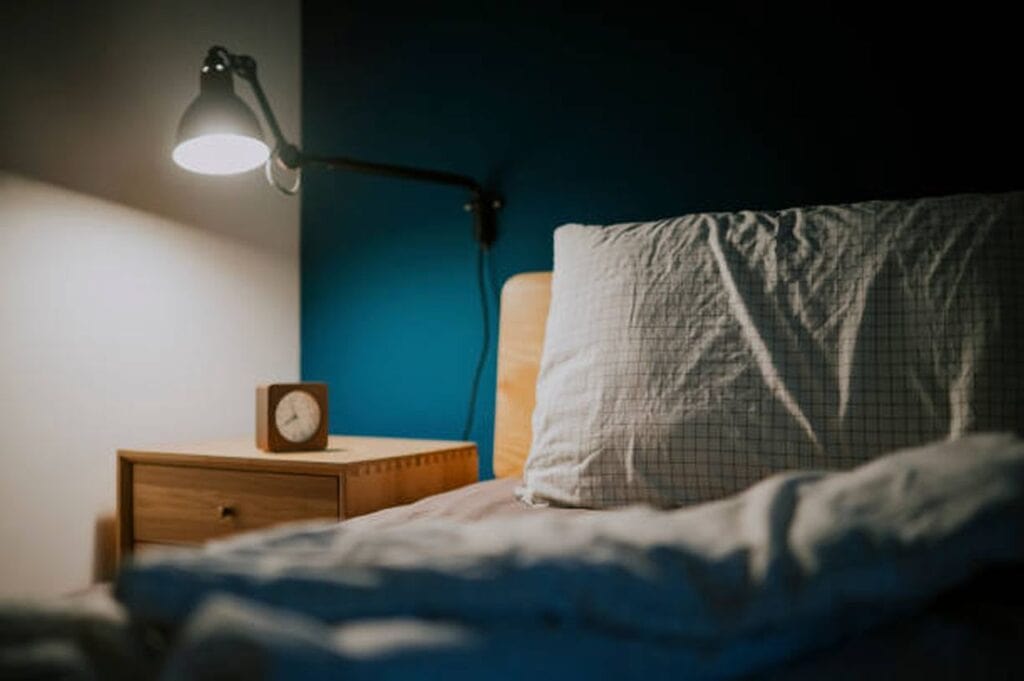The importance of having a good night's sleep for your health and productivity is well-known. But how exactly should this be done? Experts in the field of design were consulted for their advice on how to create a bedroom conducive to sleep. See if you can guess what they said by reading on! We can't function at our best if we're constantly fighting off health issues, so getting enough sleep is crucial.
If you go without sleep for two weeks, you will likely die or be in a terminal condition. There are so many ways in which sleep can boost your health and well-being that You couldn't possibly list them all here, but you can highlight some of the advantages of getting sufficient sleep and offer some suggestions for doing so.
merly competing lighting options. Please use caution when selecting bulbs and installing them. Keep visuals in mind as you get dressed and ready for the day. It's important to think about positioning from different angles.
Biological Bulbs, a new type of light bulb that changes colour at night to support your body's natural cycle, are another promising development. In just a few minutes, You was able to turn the bedrooms into cosy havens by illuminating them with a warm, yellow glow that helps get our minds and bodies ready for sleep.
Set Ambient Sound
It's hard to unwind when there are either intense visuals or an absence of sound. What works for one person may not work for another, and vice versa. For this reason, Wagner recommends using "noise machines or an ambient sound, like a fan." Carpeting and other luxurious materials, as well as suitable window sealants and double panes, can reduce the impact of noise from a busy street if you happen to reside on it. However, if you are a renter and have no control over the condition of the windows facing a noisy street, then you should focus on reducing the volume of any ambient noise.
Regulate Temperature
Discomfort of any kind, especially extremes of heat or cold, might prevent you from falling asleep and keep you awake. Don't get either too hot or too cold. If you don't have full control over the temperature regulation in your bedroom, it's a good idea to sleep with a few layers on hand. If you tend to get cold during the night, keeping an extra blanket near your bed is a good idea.
Stick To A Routine
As much as possible, even on weekends, try to maintain a schedule in which you go to bed and wake up at the same time every day. Find the best pre-sleep relaxation regimen by trying out a few different techniques. Some examples include taking a warm bath, reading, and, most crucially, avoiding the use of electronic devices in bed (this includes phones unless you're utilising sleep apps).
Turn Off Every Light
Light has a significant effect on the wake-sleep cycle. Light is detected by specialised cells in the retina, which then signal the brain to adjust its activities accordingly. This indicates that being awakened by light or subjected to light before bedtime makes it more difficult to fall asleep.
Steer Clear Of Stimulants
Even if it makes you tired, alcohol has a seriously negative impact on your ability to get and stay asleep. Try to avoid doing anything too stimulating right before bed. Stay away from caffeine and nicotine as the day progresses.
Seek Professional Help
If none of these methods help, you might want to try hypnosis, either with a professional or through self-hypnosis using tools like the Relax & Sleep Well Hypnosis app. Make sure that neither a medical condition (such sleep apnea) nor any medicine you're taking is preventing you from getting enough shut-eye.
Pick Your Bedding Wisely.
Did you know that after seven to ten years, a mattress should be replaced? Do you have aches and pains? Perhaps you're not getting a good night's sleep because of discomfort. So maybe it's time to go for a whole new, high-quality mattress.
To ensure a restful night, your bedding selection is very important. Add some style to your home's interior with these decorative fabrics. Fabrics made of linen are a good choice if you have trouble sleeping due to the heat. Equally, if you tend to get chilly, it's best to wear something warmer, such as flannel. As a rule of thumb, the best bedding is soft and comfy, with a stylish pattern that complements the room's aesthetic.
It's important to have a nice place to lay your head after a long day. The best pillows hold your neck in a neutral position, with your spine in its natural curve. If you tend to sleep on your side, you should get a pillow that is both firm and plump. However, people who sleep on their backs or bellies will benefit from the spine-aligning effects of a thinner pillow.

Select Your Lighting Wisely.
A calm state of mind is essential just before turning in for the night. Use lower-wattage lights and combine them with shades to soften the light. Similarly convenient are smart lamps, which may be managed without leaving bed. So, if you want to get some shuteye, tell your phone or voice assistant to turn them off.
Declutter Your Bedroom
Bedroom decluttering and organising has been linked to several positive psychological outcomes. Almost everyone agrees on this as a given. Your bedroom should be a place of peace and relaxation, so if it's a hotbed of disarray, it's time to clean it up.
Your anxiety will go down, your stress will be cut in half, and you'll be able to rest much faster thanks to the clean and organised environment. If you don't already have one, consider getting a small nightstand chest or tray. By doing so, you may ensure that no piece of furniture is impeded in its ability to do its job.
Opt For Warm Colour Schemes
Colours have the power to set the ambience and influence your emotions, therefore it's important that your walls, drapes, carpeting, and accessories all adhere to the same colour scheme. More quickly drift off to sleep thanks to the soothing impact of warmer colours, which also contribute to a more welcoming environment.
It is recommended by many interior decorators that you paint your bedroom with a soothing colour like cream, warm orange, soft brown, etc., to help you relax and drift off to sleep.
Block Out The Light In Your Bedroom
If you work the night shift and wish to sleep in during the day, or if you're tired of being woken up by the sun every morning, installing blackout curtains or blinds is a perfect solution. People are easily roused from sleep by even a small amount of ambient light. Therefore, if you're attempting to get some shut-eye but the sun is shining in through your windows, blackout roman blinds are the way to go.
Relaxing Scents Should Be Used.
Bedrooms with pleasant aromas can help you fall asleep faster and stay asleep longer. Aromas like lavender, camomile, and ylang-ylang have long been used to calm anxious minds and ease tension. That's why they're perfect for usage all over the house. You may get these fragrances in a wide variety of reed diffusers, candles, and incense sticks, all of which can serve as decorative accents in your home. With such calming and comforting aromas, it will be difficult to stay awake for more than a few minutes.
Turn Off All Electronic Devices Before Going To Bed.
Blue light, which is emitted by electronic gadgets such as your phone, can cause your body's melatonin levels to drop.
The sleep-wake hormone melatonin regulates circadian rhythms. When melatonin levels drop, it can be harder to get to sleep.
Blue-light emitting devices are useful for keeping the mind active and attentive. There's a chance it could make it more challenging to drop off to dreamland.
Even if you don't intentionally check your phone in the hours before bed, just having it in the room with you can cause sleep disruptions.
In the middle of the night you can be startled awake by an SMS notification, a buzz, or a light that abruptly turns on.
Make Your Sleep Environment Work For You.
There is some evidence that sleeping in a cold, dark, and quiet room can help you do just that.
Most individuals sleep best at a temperature of between 60 and 67 degrees Fahrenheit (15.6 and 19.4 degrees Celsius) in their bedrooms.
A soft, supportive mattress, fluffy pillows, and clean sheets are other necessities. You may have an easier time getting to sleep and staying asleep if you're in a cosy position. In search of advice? Browse our shop for mattress and pillow suggestions that have been vetted by our editors and experts.
A quality pair of earplugs can help you get a good night's rest even if you have noisy neighbours or are a light sleeper.
In addition, if light enters your bedroom too early, you may wish to use blackout curtains or an eye mask to ensure a completely dark sleeping environment.
Go To Bed Only When You’re Tired.
If you're not exhausted, you shouldn't lie in bed tossing and turning. Instead, do something soothing until you're sleepy, and then turn in.
If you've been in bed for 20 minutes and still aren't sleeping, get out of there. When you can't sleep, frustration is likely to set in, prolonging your wakefulness.
Relax by doing something soothing once you've gotten out of bed, like read on the sofa until you're too weary to just go back to sleep.
The best sleep can be attained in a bedroom decorated with calm colours, textures, and furnishings. Since this is the case, the bedroom is the room of the house which Experts normally advise prioritising.
The master bedroom in our home is one of the rooms we've been meaning to redecorate the most. The primary focus will be on getting rid of the relatively inexpensive furnishings You inherited and replacing it with things that better suit the long-term needs.
Making your bedroom into a haven for rest and relaxation at the end of the day. The capacity to focus, generate ideas, and acquire new knowledge can all benefit from a good night's sleep. Tired people have trouble focusing and are more prone to make mistakes in the workplace or classroom.
Fresh Air
Air purifiers are a good investment if you either can't keep your windows open at all times or if doing so will expose you to dangerous levels of pollution. Proper Feng Shui energy relies heavily on a constant supply of clean air.
Plants and flowers should not be used in the bedroom, especially if the space is limited. Keep them far from your bed if you decide to use them.

No Exercise Equipment Or Electronics.
It's likely that you've had a TV, computer, or workout equipment in your bedroom at some point in your life (perhaps even right this second). You are aware of how simple it is to get sidetracked and lose track of time by doing things like checking email, watching the newest Netflix.
The reasoning behind keeping a computer out of the bedroom is because it is more commonly connected with work, whereas the bed is more commonly associated with rest. According to Feng Shui, the energies of work and repose are diametrically opposed to one another since they occupy opposing corners of a space.
One of the quickest ways to kill off any positive Feng Shui energy in a room is to fill it with clutter. Get rid of them immediately. The onset of nighttime and the accompanying increase in darkness serve as the body's own built-in cues to begin winding down for sleep. Electronics, sadly, are interfering with this otherwise natural process.
Clutter/ Space Planning.
Clutter is just as much of a distraction as having a television, computer, or workout equipment in your bedroom. Because of the anxiety and confusion that clutter can bring on, it might be difficult to get to sleep at night.
Examine your furniture placement and available storage space to find better ways to maintain order. Things stored under beds, behind doors, etc., can collect dust and negative energy and should be removed.
Life is busy, You get that. Time is of the essence, thus we stick to strict schedules. Did you know that by rearranging as few as 25 items in your house, you may completely alter your outlook on the area? Yes. That's because, according to cosmic theory, you're influencing the CHI, or the flow of energy. Get rid of the mess on the chair and the clothes in the closet. The change will be noticeable to you.
Conclusion
Experts in the field of design have compiled some advice that will help you get some shut-eye. Make sure you have complete darkness, complete silence, and a cool place to sleep. Eliminate screen time before night and stick to a regular schedule. To the extent you can, spend some time in the daylight outside. Finally, stay away from the booze and coffee if you want to sleep well.
FAQs About Builders Melbourne
They recommend these tips for getting a good night’s sleep: Go to sleep at the same time each night, and get up at the same time each morning, even on the weekends. Don’t take naps after 3 p.m, and don’t nap longer than 20 minutes. Stay away from caffeine and alcohol late in the day.
- Avoid excessive light and electronics at bedtime.
- Create a regular sleep schedule and a good sleep environment.
- Avoid caffeine, alcohol and tobacco.
- Avoid long daytime naps.
- Schedule a “worry time” in the early evening.
Specifically, sleeping on the side or back is considered more beneficial than sleeping on the stomach. In either of these sleep positions, it’s easier to keep your spine supported and balanced, which relieves pressure on the spinal tissues and enables your muscles to relax and recover.
The ideal sleep environment is cool, quiet, and dark. Even shift workers can maintain such an environment with enough effort. Avoid light from computers or televisions close to bedtime. A 30- to 60-minute “wind-down” period may also enhance sleep.
Epidemiologic research has shown that social features of environments, family, social cohesion, safety, noise, and neighbourhood disorder can shape and impact sleep patterns, physical features such as light, noise, traffic, pollution, and walkability can also influence sleep and is related to sleep disorders.

